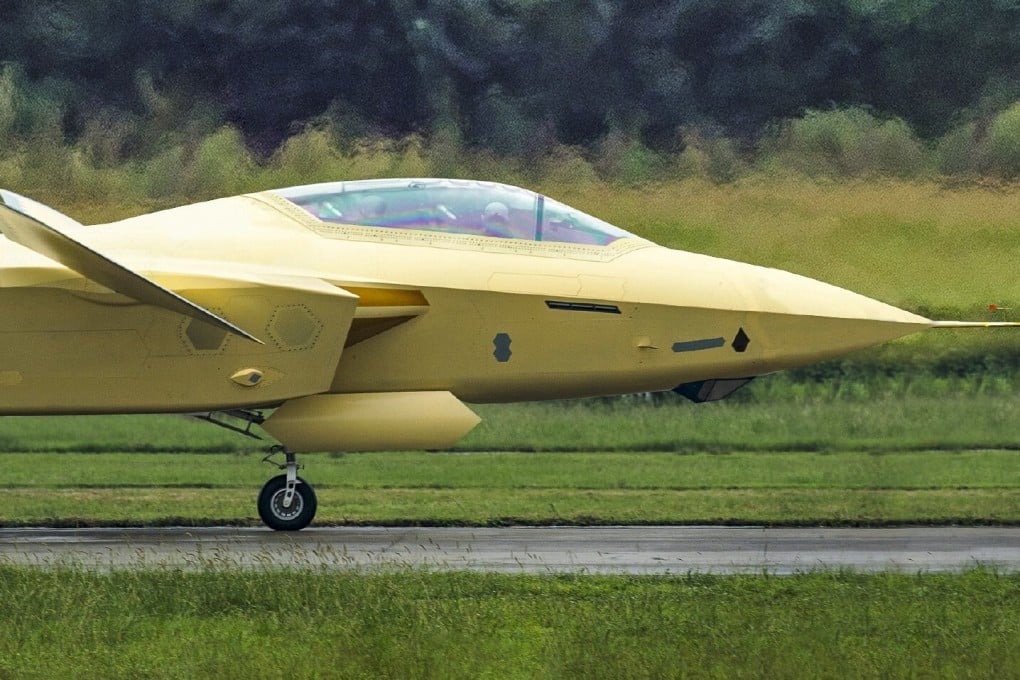China’s stealth fighter built for two prepares for maiden flight in world first
- Twin-seater version of the J-20 Mighty Dragon could make its debut as part of PLA Air Force’s 72nd anniversary celebrations
- Military analysts say China is trying to apply the US doctrine of next generation air dominance

The prototype, with an elongated canopy, was unveiled two weeks before the PLA Air Force’s 72nd anniversary on November 11, suggesting its maiden flight could be part of the celebrations, according to a military source who requested anonymity.
“It’s not clear when the maiden flight will take place, maybe on November 11. The final decision will depend on the weather situation and other technical issues,” the source said.
Experts said the variant showed China had beaten the US and other competitors. It was an attempt to prove that the US concept of next generation air dominance (NGAD) could be successfully applied in Chinese aircraft technology, they said.
NGAD is aimed at developing US air force superiority in the 2030s by creating a network of advanced fighter aircraft, sensors and weapons with jets and autonomous drones fighting side by side.
“The twin-seat variant of the J-20 … attests to the upward trajectory of the Chinese aerospace industry, showing that Beijing is capable of indigenous breakthroughs and does not need to rely on foreign technology as it has in the past,” said Ben Ho, an air power researcher from the military studies programme at the S Rajaratnam School of International Studies in Singapore.